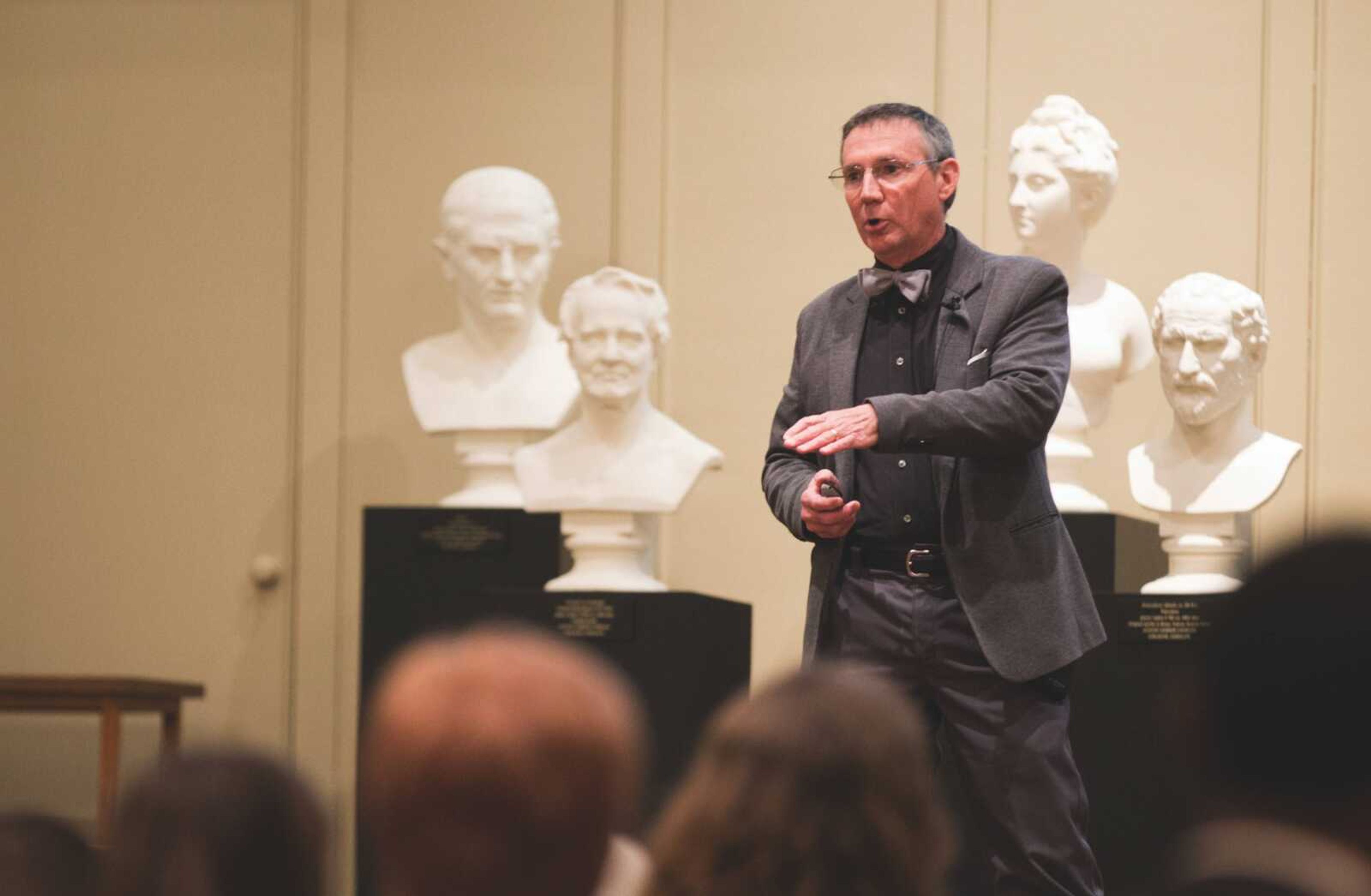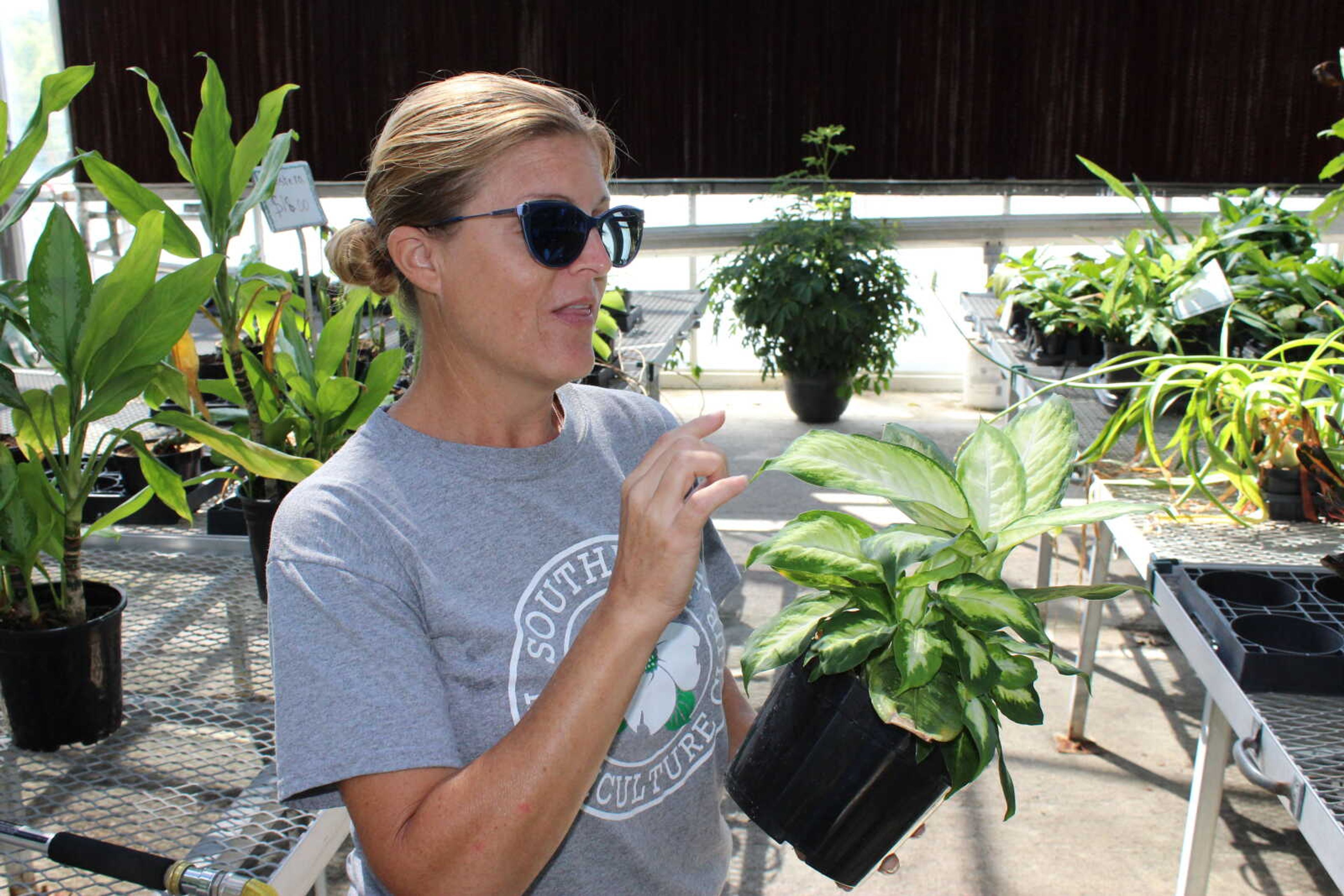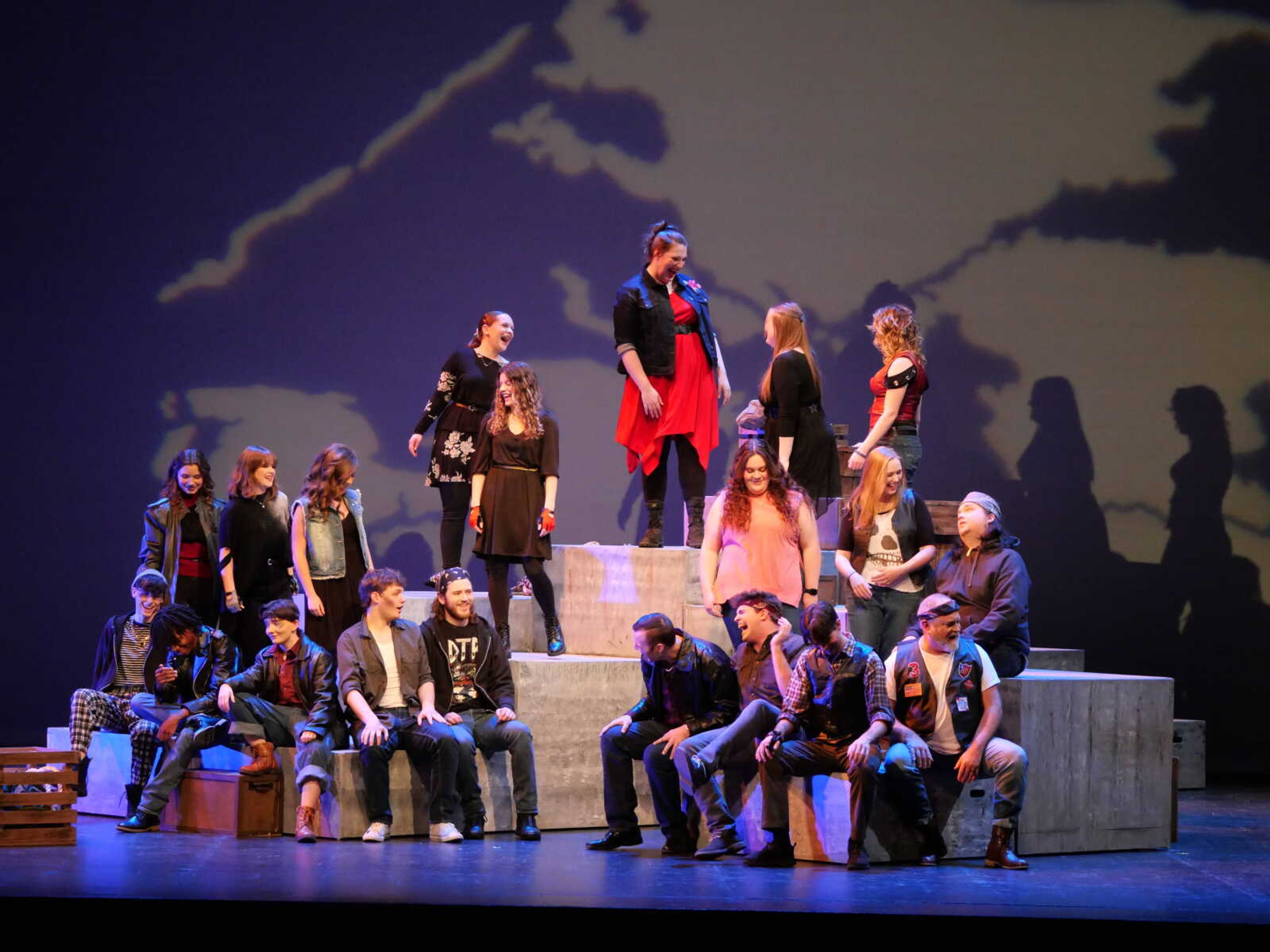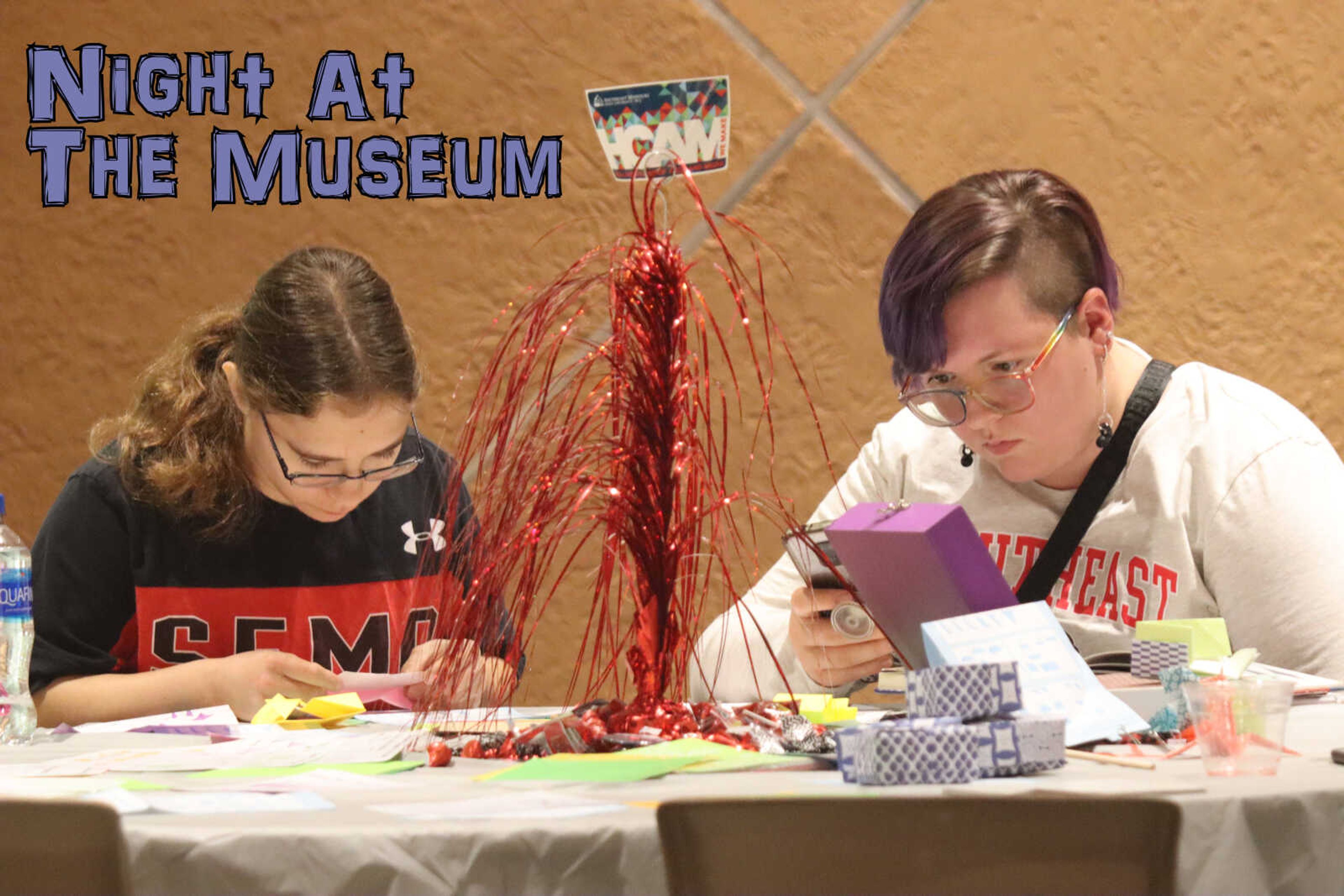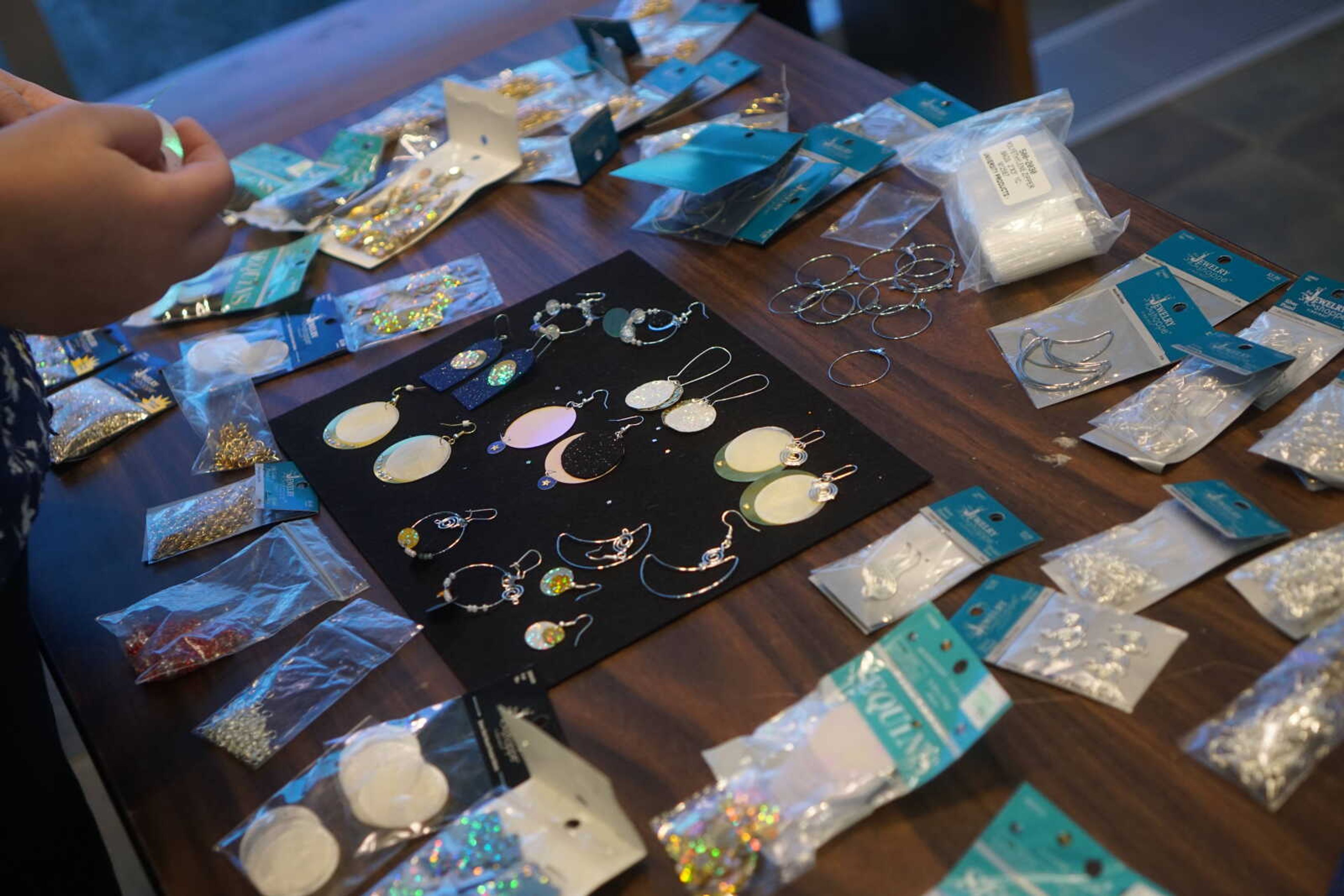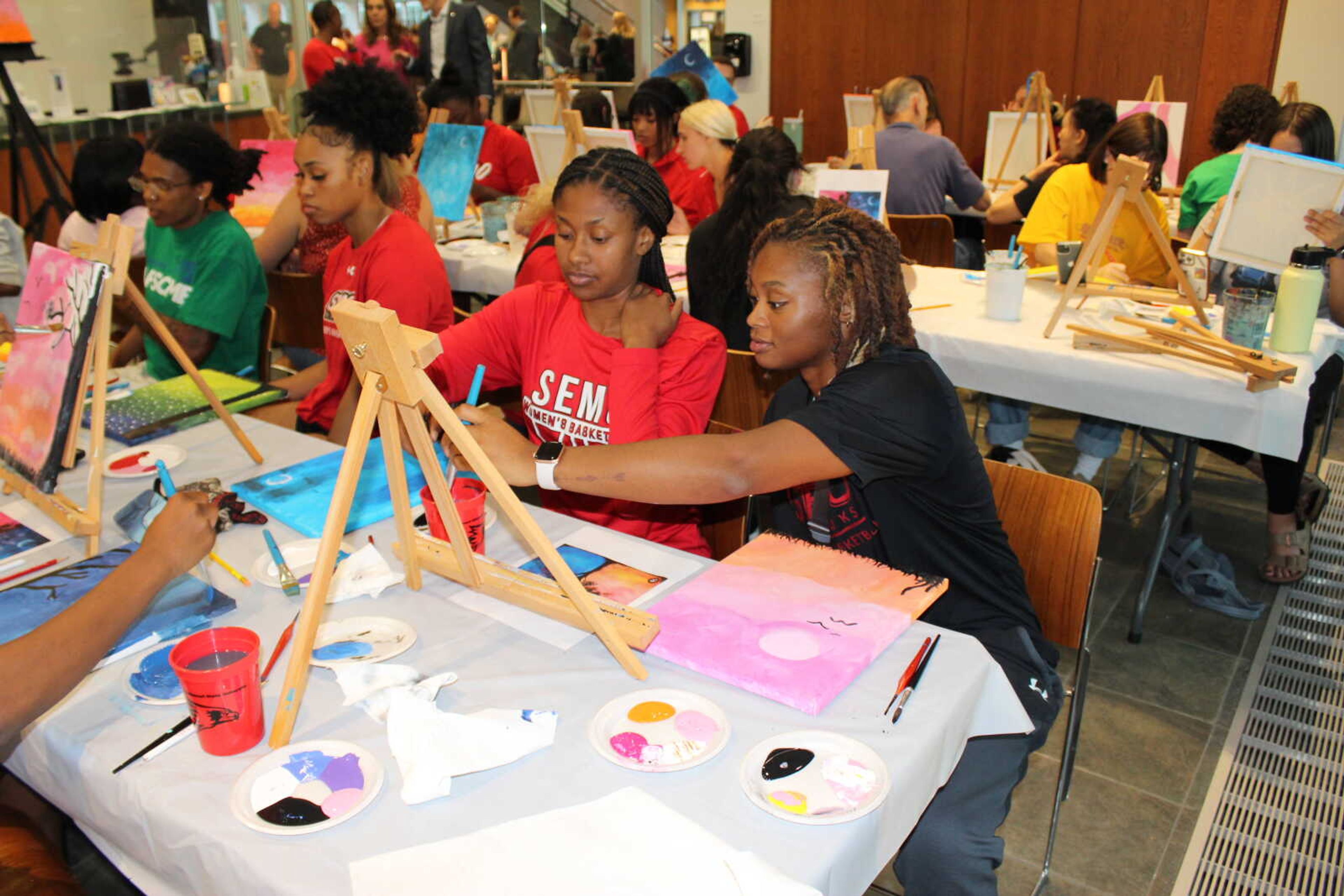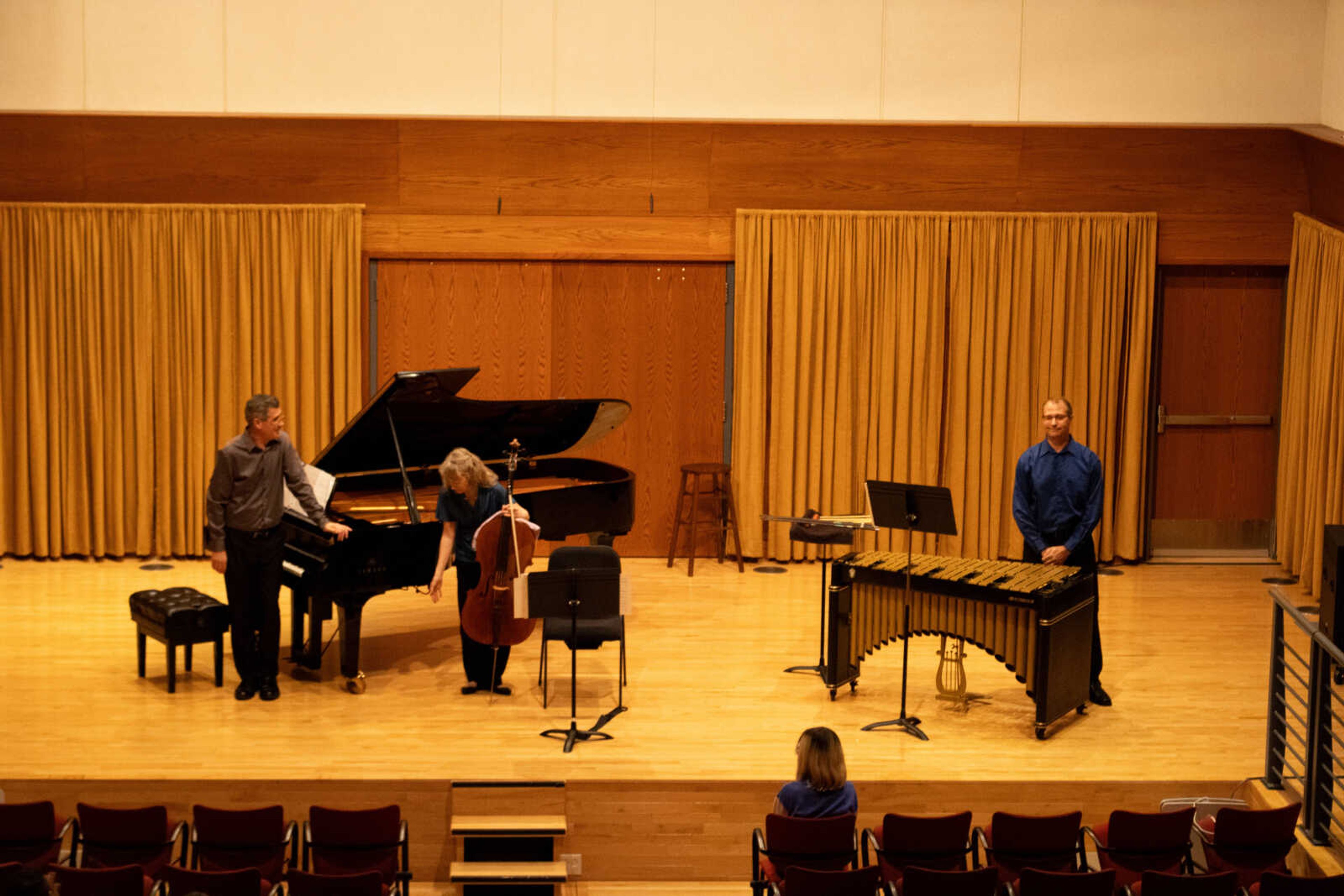Southeast Missouri State University hosted a TEDx event "Diverse Passions" Thursday, which featured four speakers, and two videos, and facilitated discussion time to promote an interactive conversation on diversity issues and how to reverse them.
TEDx is a program from the not-for-profit organization TED that is local and self-organized. This year, Southeast's TEDx event was organized by Southeast student, Collin Ritter, and professor, Brooke Clubbs. The event was hosted in the Aleen Vogel Wehking Alumni Center and 100 community members were invited to attend. Fifty attendees were students who had received free tickets based on a lottery system from the university. If students did not get chosen for this event, there were separate viewing parties hosted on campus and at The Broadway Federal to stream the event live.
From the TED motto "ideas worth spreading," Southeast professors, Dr. Debbie Lee-DiStefano, Dr. Allen Gathman, Dr. Tamara Zellars Bucks and Dr. Kenneth Heischmidt, all spoke on behalf of diversity across the world and how to diversify oneself. Each speaker was given 10 minutes to present their specific topic. With the support of videos from universal TED talks and a discussion period, the audience was submerged into a learning environment not only with local professionals but from all over the world.
The first speaker, Lee-DiStefano, is a professor in the global cultures and languages department at Southeast who spoke on the issues with assumption. Lee-DiStefano said people often generalize others based on looks and assume things about their background without actually getting to know them.
"Whenever you start to make an assumption about who someone is, stop yourself for just a moment and think 'Let me let them tell me who they are rather than letting me define them,'" Lee-DiStefano said.
Gathman presented on the topic of human genetic diversity. Gathman taught biology for 26 years at Southeast before becoming an administrator. In his talk, Gathman discredited race as a biological classification and labeled it as a mere social construct.
"Grouping only works because of the way things evolve," Gathman said.
He explained further by saying homo sapiens started in Africa and soon spread. Since they were all exposed to different environments, their characteristics soon changed due to evolution. Gathman believes there are no discrete continental groups, but continuous variation. Every single person is genetically different from the other, not just different racial groups.
Buck, a former newspaper reporter and current professor in the mass media department at Southeast, started her presentation with the social construct that "boys don't play with dolls." Buck's talk was about how the media influences the public's ideas of gender roles, race and more. Buck went deeper on her initial statement by saying people believe boys don't play with dolls because they have been advertised as a girl product, so people assumed that role.
Buck said infants spend at least two hours a day in front of media gathering information on what is normal, appropriate and special based on what is presented to them.
Buck left the audience with one last thought: "Make us tell many truths, not just the truth. Different cultures must hold the media accountable for getting their story correct."
The final speaker of the evening was Heischmidt, a marketing professor at Southeast. He spoke on how to stand out of a pool of applicants when competing for a job. Heischmidt said graduates are "one in a million" and meant this literally. Upon graduation, Heischmidt said students are faced to compete for jobs with millions of other students who just graduated and want the same job. He explained students need to focus on marketing themselves with grades, work performance, leadership opportunities, different organizational experiences, international study and professional degrees.
Each TEDx talk was supported by two videos from the TED website. These talks were "The Danger of a Single Story" and "Do Schools Kill Creativity?" Each can be found on the organization website at ted.com.
